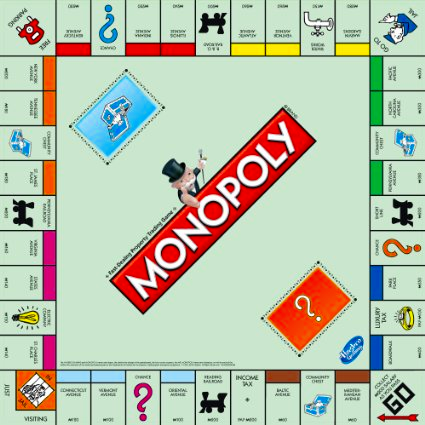
To compound this, many people are unaware of a rule that can make the game quicker. Add to that all of the down time between turns and you can see why people get bored.” “There are no changing objectives, the board is always the same. “What it comes down to is luck,” says Reynolds. The lowest ranked game, if you are curious, is Tic-Tac-Toe.

The game has an average rating of 4.36 out of 10 from over 25,000 reviews. The site, a database which aggregates reviews from players, lists Monopoly at 18,583 out of 18,591 rated games. Reynolds's frustrations with Monopoly are shared widely with other board game players, too. Without limited resources there is no end to how dominant the leader can become. The fact that the bank cannot go broke only exacerbates this problem. But for a game, it doesn’t make it a lot of fun. The game was originally intended to be a reflection of real life, where those with money are most able to make more, while those with least will struggle to get out of their rut. It is practically impossible to make a comeback.

The losers keep losing and the winners keep winning. Having more money means you have more options available to you, with no negative effects. Reynolds description of Monopoly is what is known as a positive feedback loop, whereby the greater the margin someone is winning by, the easier it is to increase that margin. For everyone else, losing is inevitable.” “It is really fun for the first bit and then for the person who is winning.
BEST FREE ONLINE MONOPOLY GAME TV
Soon, Life photographers, a journalist from the Wall Street Journal and local TV news crews had gathered at the student’s fraternity house to document the game. Should the float ever run out, the rules dictate the bank can issue IOUs, which can be exchanged for cash when the bank becomes solvent again. But don’t get your hopes up for an armoured truck pulling up outside your house. This is now written into the Monopoly rule book. The four students had inadvertently revealed an interesting loophole in Monopoly: the bank cannot run out of money. The toy money was flown to Pittsburgh International Airport before being delivered in an armoured truck.

Rushing one million Monopoly dollars to you by airmail – carry on.” According to local news reports, the students received a reply from the company president which read: “Refuse to let bank fail. The players wired Parker Brothers, the games manufacturer that published Monopoly before it was later absorbed into Hasbro. At 3am on Tuesday the local news crew arrived.īy Wednesday the game looked in jeopardy – the bank’s money had run out. Leeds rang KDKA, the local news affiliate, to tell them they were going for a record-breaking attempt. How long could they keep playing for? They wanted to find out.

Late into that Monday night on 27 November 1961, with no end in sight, the four students felt that to pack up their game would be a waste. The four students at the University of Pittsburgh had been playing for several hours when they decided to pool their resources, grouping two teams to keep the game going. It was a slow Monday evening when Eddie Leeds, Howard Finkel, Allen Paulenoff and Sherman Fogel sat down to play a game of Monopoly.


 0 kommentar(er)
0 kommentar(er)
